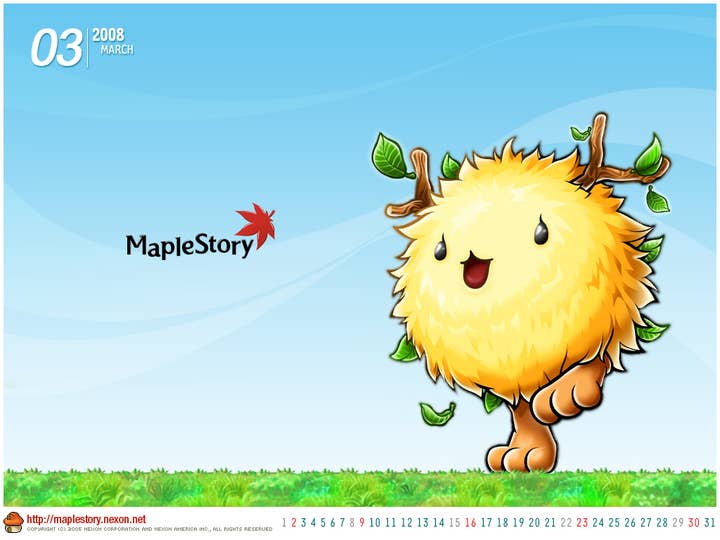"We're in this kind of historic, golden moment"
Nexon's Min Kim on why ARPU should come second to delight
It might say more about my tainted perceptions about the reality of the business, but when I sat down to talk to Min Kim of online free-to-play specialists Nexon, I didn't expect him to start telling me that people are spending too much time thinking about ARPU, CPI or retention. From my perspective, and I suspect a lot of others, these are the golden pillars of the model: the first and last metrics of note and certainly the numbers you push around to potential investors. For a statistical mathematician with a background in investment banking, Kim has a refreshingly different take.
"I guess what I was trying to say was: the market's already telling us that the business is there, but I think a lot of people are approaching it too much from the angle of the ARPU and the user acquisition costs, etc. I think it's kind of taken a little bit of magic outside of the game when it's really an art form.
"That's been really the challenge that I've been suffering: how can we look at the business differently rather than thinking about ARPU's, what the numbers are, what knobs to turn etc? Instead, we should be thinking about what experiences can we deliver that are going to delight users. The crazy thought that I was giving with the talk today was I believe that there are going to be companies out there that really practice and really understand the value of user experience over time.
"How could we get Western developers to think about going into free-to-play? What that ended up turning into is this discussion of the science of turning these knobs. That wasn't ever the intention"
"The early part of my career on the US side was really evangelising the power of free-to-play," continues Kim, talking about his experience of bringing 2D side-scrolling MMO Maple Story to the west for Nexon. "I think some people remember that, the people that were going to GDC. What I knew at the time was that I couldn't really grow an industry by myself, it would be very hard. How could we get Western developers to think about going into free-to-play? What that ended up turning into is this discussion of the science of turning these knobs. That wasn't ever the intention."
Kim has been speaking at DICE Europe, a smaller, London-based echo of the Las Vegas DICE event. Opening the second day of the proceedings with his presentation, Kim engaged an interesting aspect of the show's theme of "without borders", suggesting that many of the borders that need demolishing are those of control, of separation between developer and audience. Some of the greatest successes of recent years, he believes, have been the result of more loosely defined products that allow players more room to define them.

"There's going to be an uncomfortable place where developers and players are going to come together to create something new that we haven't seen before," Kim continues.
"I think we're starting to see that already. Even if you look at Minecraft. Minecraft is a $26 or $29 game. Everybody knows what the game is, but imagine Minecraft without YouTube. Imagine Minecraft without the players coming together. They created something special. I think even Markus [Persson, creator of Minecraft] said in some interviews it wasn't something that he originally thought up. Maybe if he had all the resources he might even have stopped some of those things from happening. I think that's the kind of discomfort that we have to get familiar with."
Essentially, Kim seems to be arguing that trying to retain control over what your audience will enjoy is a game of diminishing returns. For many industries, desperately trying to maintain the status quo has been the received wisdom for generations - keep trends under your control, subsume new cultural movements into the mainstream, reduce innovation to reduce risk and stick to what you and everybody else knows. That attitude worked in music for a while, but older generations will always lose touch with the young. They are trying to define themselves by finding the new. Kim believes that you have to give players the flexibility to do that too.
"If you rewind 5 years back and you really think about all the things that have changed, it all happened on the player side. The people are solely focusing on the product, they're not really focusing on the intersection between the product and the players"
"It's a hard topic to approach because a lot of the people that are working in games have been working for quite a long time now. If you watch that movie 'Big' you have that little kid. He became the industry executive and still had the desire inside to have the player empathy, but after a while you lose that. I think you have no choice but to lose it because we're working in a vision space that constantly keeps changing. That's an uncomfortable thing to hear for people in the industry.
"That was the first half of my talk. This kind of lowering of the boundaries and the borders. If you step into PAX, things have changed. If you rewind five years back and you really think about all the things that have changed, it all happened on the player side. The people are solely focusing on the product, they're not really focusing on the intersection between the product and the players, and the players with the developers, and the players with each other.
"Because there's so much awesome stuff that's happening on YouTube, the videos that people are posting, the amazing creations that people are making on Minecraft, all the League of Legends stuff - this didn't exist before. I think the innovation is just happening in a place where it might be a little bit outside of the control of the developer."

Kim's doesn't think that companies have a natural shelf-life of innovation, however. Being formed of people means that a business can always look for new horizons via new hires, bringing new vision to the fore by allowing people with new ideas to make their impact - further echoing his message on the perils of over-control.
Often, he says, those ideas come from people and outfits working without the resources and established market privileges of the companies who are already dominant. From those circumstances come fresh ideas - and perspectives that resonate more closely with what audiences are after.
"I think we should chase fidelity," he states with confidence. "I think we should keep pushing the boundaries of the art. People talk about constraints, and what everybody's talking about right now is that constraints drive creativity. If you look at a lot of gameplay innovations, they are actually coming from people that don't have the financial means to do something at that level of polish. Now once somebody identifies that, I think there's going to be people that try to innovate on that or I guess build upon it by having that fidelity, but we do need the constraints to bring that creativity out."
"The developers are going to be independent. They're going to be separate. We're going to find them. We're going to help them to bring these games to market"
Until recently, Kim was the CEO of Nexon North America, but his job has changed. He's going to be heading up Nexon's new, western-focused publishing arm Nexon XP - standing for "external partners" - where he hopes to gather exactly the sort of small-team, bleeding-edge talent that brings innovation.
"I think the mandate for Nexon XP is pretty simple," he explains. "It's to locate the world's best talent, which doesn't necessarily mean AAA major big studio, etc, but I think people that are really interested in creating these kind of experiences that the world hasn't seen before - on the Western developers side, because we have a lot of people already on the East side. So my mandate will be to identify Western developers to create world-class IP with the potential to become global phenomenons then bring that to people. That's really what XP has been formed to do.
"I think the developers are going to be independent. They're going to be separate. We're going to find them. We're going to help them to bring these games to market. The only thing we'll be looking at are things that need to be created. We do think that there's going to be really special projects out there that need to be made, and so we'll work together with them to bring those games to market. The things that are already created, that probably wouldn't be within our remit."
I remark to him that the set up sounds similar to that of one of the other companies we've heard speaking at the event: Devolver Digital. On stage, Devolver's Graeme Struthers and Andrew Parsons have been talking about how their ultimate aim is to connect developers and audiences with as little interference as possible, essentially making themselves all but redundant. Kim approves.
"I think it's a difficult step, but I also think it's a really natural one," he says of the gradual 'backing off' of publishers. "Because what they were saying was, 'We just put the developer and the players together and we have no role', but the fact that they're doing that is really kind of showing their courage and their value. Understanding that that actually creates value because there will be other companies out there that are trying to keep the player away from the developer and then that magic wouldn't really happen.
"I talk internally about this and sometimes it makes me sound a little crazy, but I do think that over the past few years there's been like this Protestant reformation in games...not to take it to a religious level, but the developer and the players both wanting to reach out to each other without necessarily going through retail. There's still value in that, but there is [also] the natural desire for players to want to connect with the developer. If you look at Chris Roberts' stuff, I mean, they're doing some amazing things there. I think people on the dev side are constantly thinking of 'what's he going to make' and 'is that going to be really great', but he's already made something really great, which is that experience, and the conversation that he's having with the player. That's already innovation, in my opinion."
"I think people really need to take a deep look inside and say, 'Okay, what's the experience that I'm delivering to the player?' If they can't answer that they're probably in really big trouble"
The unprecedented success of Star Citizen's crowd-funding efforts has become a gold standard for the business - one which we've seen many try to imitate but never quite emulate. I ask Kim if he thinks that these high-profile outliers can be harmful to companies who try to copy them.
"I think the key there is experience," he ponders. "What's your experience going to be? What's your experience for your IP going to be? What's your experience with the player? What's the player's experience going to be? Some people will go down that path, I don't think it's the right path for everyone. But you know somebody ends up doing it and everybody copies it, but it doesn't work out the same because you don't really understand why it really worked for them. You're just kind of copying it. So I think people really need to take a deep look inside and say, 'Okay, what's the experience that I'm delivering to the player?' If they can't answer that they're probably in really big trouble.
"At the same time I do feel like we're in this kind of historic, golden moment that's never really existed before. There's never really been a true global opportunity in games, and when we look now all the borders have come down. Players can interact directly with developers, developers can do the same with players, there are markets that have already been validated all across the globe. It's not a niche thing anymore, it's a major thing in every market.
So we're kind of in a special place that's never existed, and I think if people just sit down and think about it, it's like, 'You're right, this has never existed before, there's always been a boundary that was hard to overcome'. I think we're there right now, where we will see that global phenomenon probably in the next five years. I mean, five years ago we didn't even have the iPhone, which is crazy. Even when Facebook first came out, my friends in Korea told me 'no one's going to use this, no one really wants to connect with people over there'. That's not true. I think the trend is changing. The world is going global whether we want it to or not."

